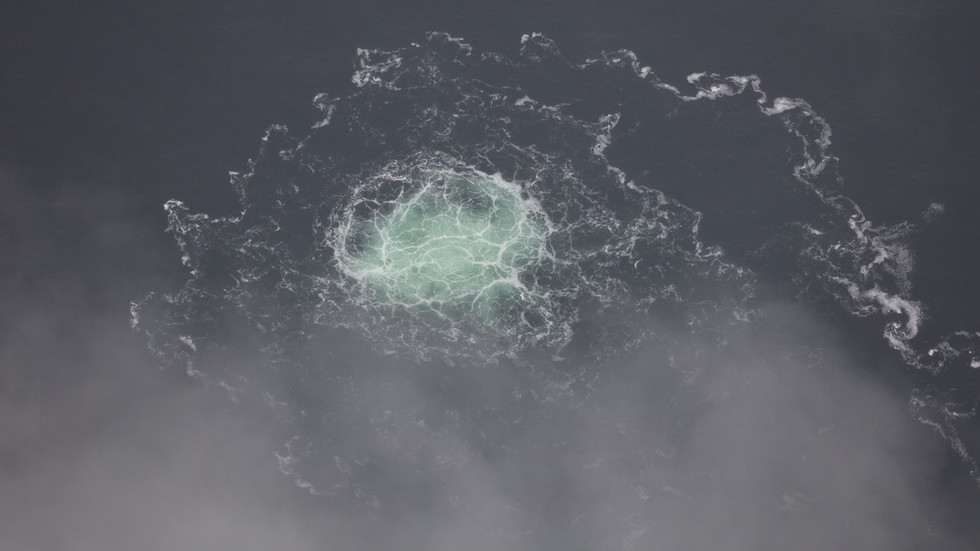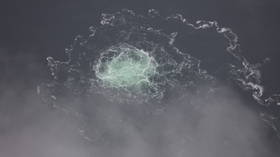
Equinor said the Norwegian government prevented it from providing requested aid

FILE PHOTO. The release of gas emanating from a leak on the Nord Stream 2 gas pipeline in the Baltic Sea on September 28, 2022 in At Sea. © Swedish Coast Guard via AP
Norway’s Equinor on Wednesday revealed that it was the government in Oslo and EU sanctions that blocked it from responding to a request for assistance in dealing with the damage to Nord Stream pipelines. The Baltic Sea pipelines delivering Russian natural gas to Germany were damaged by sabotage in September, which Moscow blamed on the West.
“The Norwegian Ministry of Foreign Affairs has stated that work on the pipelines would be in breach of the Norwegian sanction regulations – and by extension the EU sanction regulations,” Equinor said a statement emailed to Reuters.
Equinor is the Norwegian oil company that administers the Pipeline Repair and Subsea Intervention (PRSI) Pool, established by Oslo to deal with leaks and ruptures. The Swiss-based operators for Nord Stream and Nord Stream 2 are among the 72 members of PRSI, and sent requests for assistance in October, shortly after both pipelines were damaged by undersea explosions.
Because PRSI “adheres to current legislation related to sanctions,” it “notified NS1 and NS2 (operators) that we were not able to do work as requested,” Equinor said in the statement.

Read more
Nord Stream 2 AG told Reuters that it had filed a request for support to inspect the damage, “as a full member of the PRSI Pool,” but was turned down. Its sister company, which operates the original Nord Stream, said in early October that the survey vessel it attempted to charter was waiting for permission from the Norwegian government.
The original Nord Stream was inaugurated in 2011, and supplied Russian natural gas to Germany and the rest of the EU while bypassing Ukraine and Poland. The second pipeline, which would have doubled the volume of gas deliveries, was finished in 2021 but Berlin refused to certify it for operations even before the conflict in Ukraine escalated. The US had sought to block the second pipeline’s construction with sanctions and vowed it would prevent it from becoming operational.
On September 26, 2022 both strings of NS1 and one string of NS2 were damaged in a series of powerful undersea explosions. As NS1 was pressurized at the time, a large quantity of gas was released into the Baltic Sea.
Washington insinuated that Moscow was behind the blasts, while Russia pointed the finger at the West for the “act of terrorism.” Sweden, Denmark and Germany launched an investigation into the explosion, but refused to share the results with Russia. Anonymous EU officials have since leaked to the US media that there was “no evidence” to suggest Moscow was behind the sabotage. Russia’s energy company Gazprom was allowed access to the site only once, in late October.
While the German gas company Uniper has estimated it would take 6-12 months to repair the pipelines, it is unclear whether Berlin even wants to do so.



